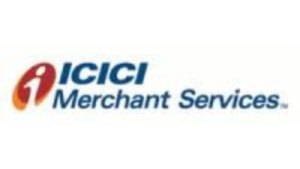Introduction
Having a poor credit score can feel like a significant financial hurdle, but getting a credit card is one of the best steps you can take to rebuild your credit. While options may be limited, many credit cards cater specifically to those with bad or limited credit history. In this post, we’ll explore the best credit cards for bad credit, discuss how they work, and guide you on improving your credit score over time.
What Are Credit Cards for Bad Credit?
Credit cards for bad credit are designed to help individuals with low credit scores (typically below 580) rebuild their credit. These cards come in two main types:
- Secured Credit Cards: These require an upfront security deposit, which often serves as your credit limit. They’re a great option for people with poor credit because they offer more lenient approval criteria.
- Unsecured Credit Cards: These do not require a security deposit, but they often come with higher fees, lower credit limits, and higher interest rates.
Both types report your payment activity to the credit bureaus, helping you build or repair your credit score as long as you use them responsibly.
Top Credit Cards for Bad Credit in 2024
1. Discover it® Secured Credit Card
Why it’s great:
The Discover it® Secured Credit Card is highly recommended for rebuilding credit. It requires a minimum deposit of $200, which matches your credit line. What sets it apart is its rewards program—you can earn 2% cash back at gas stations and restaurants, and 1% on all other purchases. Discover also offers a unique first-year cash-back match program.
- APR: 27.99% variable
- Annual Fee: $0
- Deposit Requirement: $200 (refundable)
This card’s rewards and no annual fee make it a standout for those starting their credit-repair journey. Plus, after seven months of responsible use, Discover reviews your account for potential graduation to an unsecured card.
2. Capital One Platinum Secured Credit Card
Why it’s great:
The Capital One Platinum Secured Credit Card offers flexible deposit options ranging from $49 to $200 based on your creditworthiness. Unlike many secured cards, it doesn’t have an annual fee, and Capital One automatically reviews your account for credit line increases after a few months of on-time payments.
- APR: 29.99% variable
- Annual Fee: $0
- Deposit Requirement: $49, $99, or $200
This card is an excellent option for those looking for a low-cost entry to rebuild credit.
3. OpenSky® Secured Visa® Credit Card
Why it’s great:
OpenSky® Secured Visa® stands out because it doesn’t require a credit check to apply, making it ideal for those with very low or no credit history. With a refundable deposit of at least $200, you can secure your credit line, and the card reports to all three major credit bureaus.
- APR: 25.64% variable
- Annual Fee: $35
- Deposit Requirement: $200 minimum
This card is particularly appealing for those who want a credit-building card without a hard inquiry impacting their score.
4. Petal® 1 “No Annual Fee” Visa® Credit Card
Why it’s great:
One of the few unsecured cards available to those with bad credit, the Petal 1 Visa® offers a credit limit up to $5,000, with no fees for annual membership. Petal’s use of “cash flow underwriting” means they consider factors beyond your credit score, such as your banking history.
- APR: 25.24% – 34.74% variable
- Annual Fee: $0
- Credit Limit: $300 to $5,000
The Petal 1 is ideal for those seeking an unsecured option without the high fees typically associated with bad-credit cards.
5. Indigo® Mastercard® for Less than Perfect Credit
Why it’s great:
The Indigo® Mastercard® is an unsecured card designed for people with poor credit or past bankruptcies. While it comes with a higher annual fee, it offers access to credit without a security deposit.
- APR: 35.90% variable
- Annual Fee: $75 the first year, $99 thereafter
- Credit Limit: $300
This card is suitable for those who need a quick approval and can handle the higher fees.
Key Features to Consider When Choosing a Credit Card for Bad Credit
When selecting a credit card to help rebuild your credit, keep these essential factors in mind:
- Annual Fees: Many cards for bad credit have annual fees. Try to choose a card with low or no fees, especially if you’re already dealing with financial constraints.
- Interest Rates (APR): Cards for bad credit often come with high APRs, typically 20%-35%. Avoid carrying a balance month-to-month to minimize interest payments.
- Credit Reporting: Choose a card that reports to all three major credit bureaus (Experian, Equifax, and TransUnion). This ensures that your responsible usage is recognized, helping to improve your score faster.
- Rewards: While rewards programs aren’t common with credit cards for bad credit, some cards, like the Discover it® Secured, do offer cash-back options. However, don’t prioritize rewards over building credit responsibly.
- Deposit Requirements: If you choose a secured card, be aware of the deposit required. The amount you deposit usually matches your credit limit, so make sure it’s an amount you’re comfortable with.
Tips for Using a Credit Card to Rebuild Your Credit
- Make On-Time Payments: Payment history is the most significant factor in your credit score. Even a single late payment can damage your credit.
- Keep Your Credit Utilization Low: Aim to use less than 30% of your available credit. This shows lenders that you’re responsible with your credit.
- Monitor Your Credit: Regularly check your credit report for any inaccuracies and monitor your progress as you work to rebuild your credit.
- Don’t Apply for Too Many Cards: Multiple credit applications within a short period can hurt your score. Stick to one card and focus on using it responsibly.
Conclusion
Credit cards for bad credit can be valuable tools for rebuilding your financial health. Whether you choose a secured card with a low deposit requirement or an unsecured card like the Petal 1, the key to success is using the card responsibly. Pay on time, keep balances low, and monitor your credit to track improvements. Over time, your diligent efforts will likely lead to a better credit score and access to better financial products.
By understanding your options and making informed choices, you’ll be well on your way to improving your credit and securing a brighter financial future.




